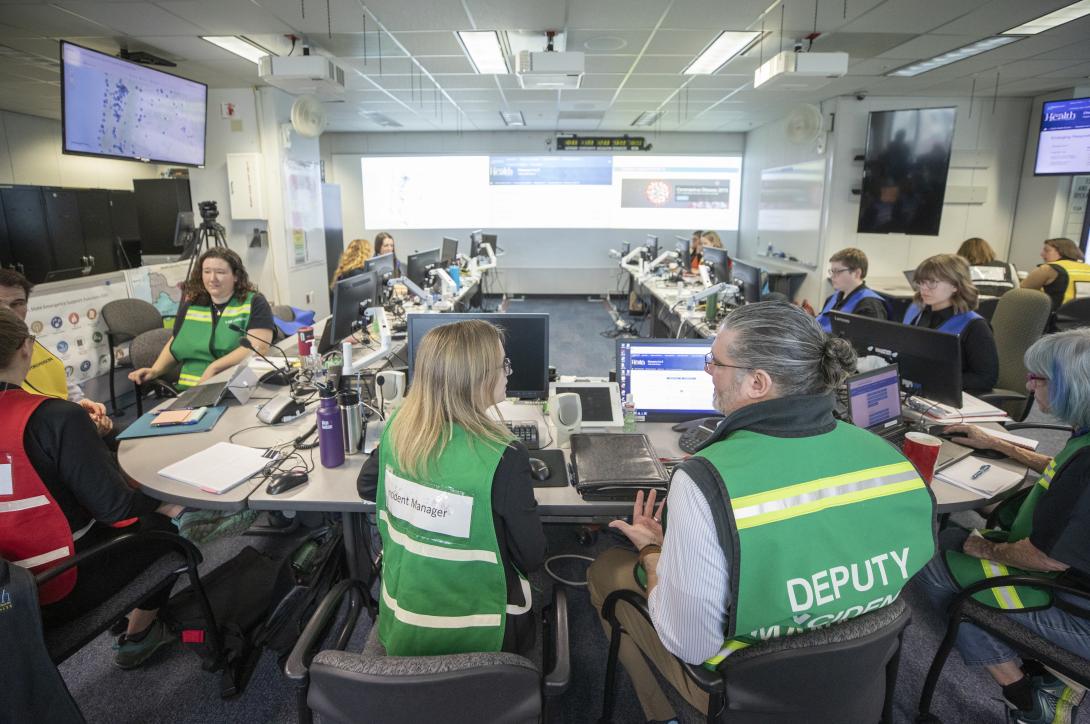
Oregon has learned some lessons from the pandemic but a full recovery will take years.
Those were two key themes cited by public health officials and emergency planners testifying before the House Interim Committee on Veterans and Emergency Preparedness Committee on Wednesday.
“We knew early on this was going to be a marathon and not a sprint,” said Andrew Phelps, director of the Office of Emergency Management.
Phelps said his agency will need to hire dozens of additional disaster recovery staff to work with the Federal Emergency Management Agency to recoup costs from the pandemic. Phelps said he expects Oregon will receive hundreds of millions of dollars in aid for local agencies, hospitals and other organizations. But getting that aid will require a lot of paperwork detailing what’s been spent and on what, tracking aid, following up and preparing for potential audits.
“We need to ensure that nothing slips through the cracks,” Phelps said.
Phelps said the process of recovering the money and related paperwork could last until the end of the decade.
By comparison, the state’s disaster recovery work for the 2007 flood that slammed the Oregon Coast lasted until 2019.
“Bottom line, this is going to be a really protracted recovery effort,” Phelps said.
Lawmakers heard about lessons learned during the pandemic from Akiko Saito, director of emergency operations at the Oregon Health Authority’s Public Health Division. Saito testified at the hearing about the need for Oregon to have enough supplies of personal protective equipment to be self-reliant. Oregon could be hit with a second wave of infections -- or it could face another disaster requiring protective gear.
“How do we build that state stockpile for the second wave or for anything else like a Cascadia earthquake?” she said.
Rep. Paul Evans, the committee chairman and D-Monmouth, urged state agencies officials to provide concrete scenarios of what they might need in terms of funding in the event that COVID-19 cases ramp up later this year.
“I need to know what a worst case and worse worst case scenario is for the fall,” Evans said.
He added: “We should never be caught short of PPE.”
Lawmakers will need more information from agencies before sending budget requests to the Legislature’s Joint Ways and Means Committee, he said.
“I don’t want to be the whiner here,” Evans said. “But I need more specificity if I am going to go to ways and means and fight to get you folks the tools.”
Evans said he doesn’t know when the Legislature will have a special session. But Oregon faces an economic crisis and a budget hole of nearly $3 billion after the state shut down to slow the spread of the virus.
State agencies have submitted proposals for budget cuts, but lawmakers and Gov. Kate Brown have not yet taken action on them.
You can reach Ben Botkin at [email protected] or via Twitter @BenBotkin1.